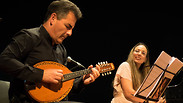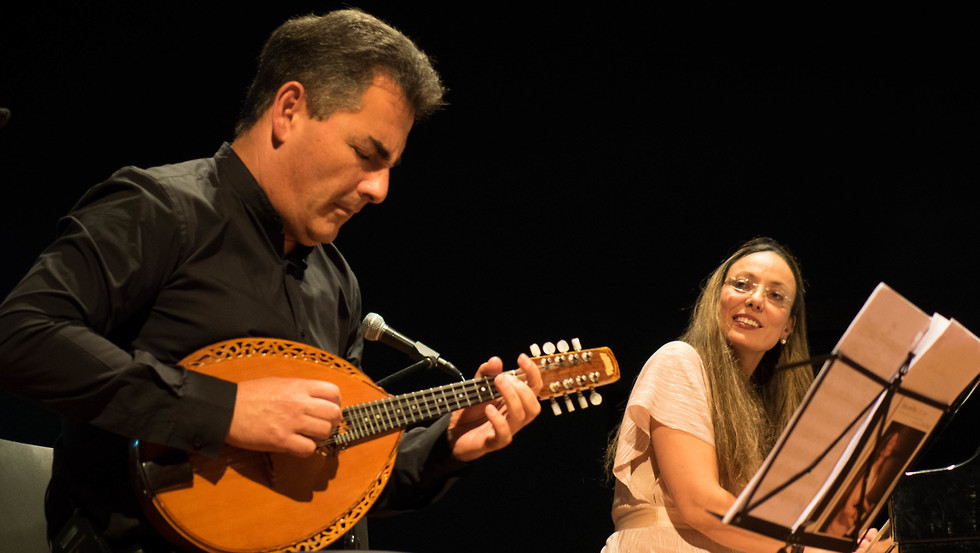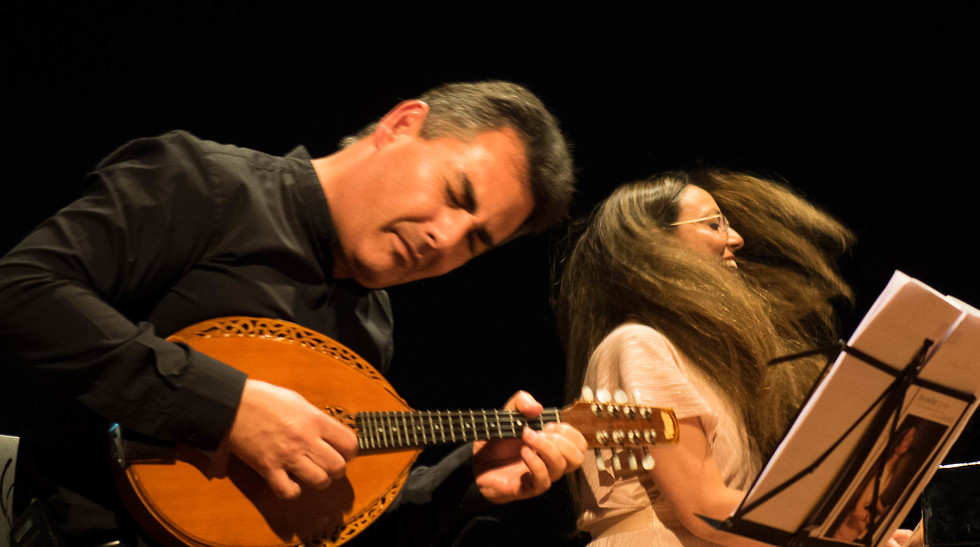A packed auditorium at the Weil Center for Culture in Kfar Shmaryahu enjoyed The Magic of the Mandolin: A Journey to Spain, Italy and Hungary this week -- a unique concert of classical music arranged and performed by the duo of mandolinist Shmuel Elbaz and pianist Orit Wolf. The concert was the third in the inaugural Music and Muse series of concert lectures sponsored by Dame Shirley Porter of Herzliya and moderated by Dr. Wolf.
For many in the audience, the evening served as an introduction to the role of the mandolin in performing an impressive repertoire of classical music. Elbaz, who is also the conductor of the Israeli Andalusian Orchestra, Ashdod, and the Netanya Kibbutz Chamber Orchestra, is one of the world’s leading mandolin artists, leading his Israeli Mandolin Quartet to win a prestigious international plectrum music competition in Spain.
The concert lecture format gave Elbaz the opportunity to explain that the mandolin is actually more like a violin than the guitar, even though it is played with a plectrum rather than a bow. Indeed, Elbaz’s style of playing incorporates a method of employing the plectrum that mimics the dynamics of using a bow, a technique pioneered by Elbaz’s mentor, a Russian musician who taught the violin as well as the mandolin.
Accordingly, the first piece played by Elbaz was an arrangement of a violin concerto by Vivaldi. The virtuosity of the soloist was clearly demonstrated: he managed to evoke both the violin and the harpsichord in his rendition of the baroque work.
A second work composed originally for violin and performed deftly by Elbaz was the Cantabile by the legendary master of the instrument, Niccolo Paganini.
The program then shifted, both geographically and in mood, to works from eastern Europe that reflected more folkloric influence: Romanian Dances by Bela Bartok, followed by Hungarian Dances by Leo Weiner. These lively works were played with great skill and passion, culminating in a rousing performance of Czardas by Vittorio Monti. This familiar and popular composition infused the evening with the vivacious spirit of gypsy music.
In response to sustained applause, Elbaz and Wolf concluded the concert with an encore, Hungarian Dance no. 2 by Johannes Brahms.
The only disappointment of the evening was the lack of Spanish representation that had been promised. Although the composers Albeniz, De Falla and Granados were all listed in the original program, only the Suite Espanola by Isaac Albeniz was performed -- and that only by Wolf as a piano solo.
Still, she managed to convey the flavor of the Iberian Peninsula; and it was clear that the audience would have gladly stayed if the concert were to have extended beyond 80 minutes.
Two more concerts remain in the current Music and Muse series: The Cello Soul in February, and Jazz, Samba and Bossa Nova in May.




















